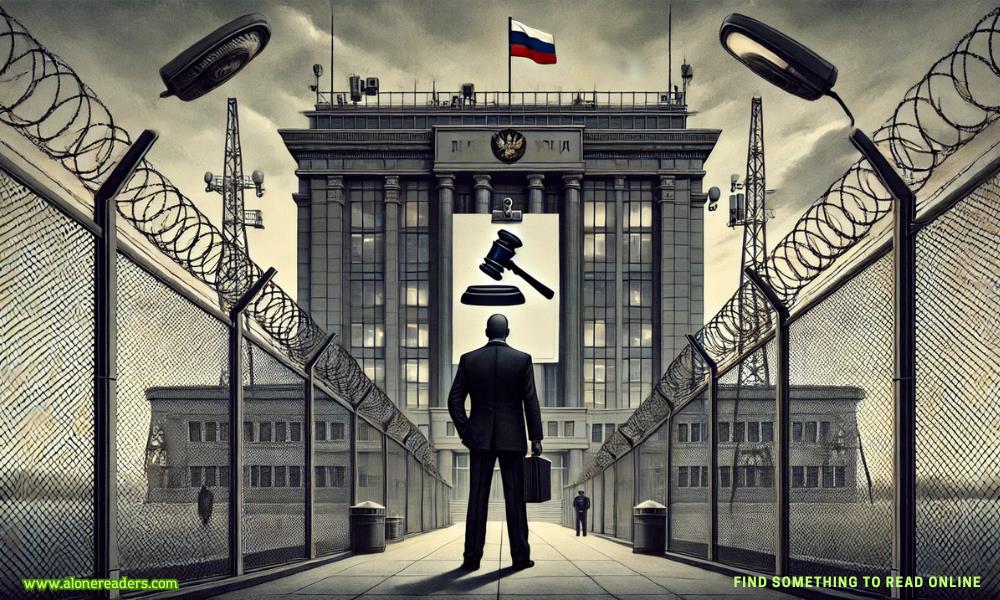Page 50 of One Last Breath
He shrugs. "Yeah, I know, but what can you do? They might be in debt, but they're still rich. Don't ask me how that works. Here's something interesting, though. Baumann's claiming that the grandmother killed a woman fifty years ago. Deirdre McCoy. I looked it up in records. I guess there was a rumor she was pregnant with Violet's husband's kid. Baumann says she pushed her down a well in retaliation."
“Can we pursue charges against Violet, then?”
He gives me a stern look. “First of all, you can press no charges. Your involvement in this matter is done. You may pat yourself on the back for your detective work, but you got incredibly lucky, and not just because you survived. You’ve crossed beyond the limits of the law more than once during this case, and had things worked out just a little differently, you would not only have put yourself at risk but also have made it impossible for us to prosecute this case. Can we the People of the State of Georgia press charges, probably not. That well’s a parking lot now. No one’s making noise about her except Baumann, and he’s got all the reason to lie. I can’t see the city risking lawsuits by tearing up a parking lot to find fifty-year-old bones. And what if we do find her? How do we prove Violet did it? No, we’ll get Baumann for Lila Benson, but that’s about it.”
“But James and Elizabeth knew for years where Lila was buried,” I protest, “and they kept it a secret! Violet knew that George killed Lila, and she didn’t come forward.”
He frowned. “She knew?”
“Yes. George was blackmailing her to stay silent. I overheard him threaten her yester—what day is it?”
“Still Tuesday. You were only out for a few hours.”
“Then yesterday.”
“She has dementia, though. The family has medical records to prove it.”
“I’m sure they do. As you said, they might be in debt, but they’re still rich. They’re protecting her. They know she killed Deirdre McCoy, and when George learned of it, they fabricated her dementia, or allowed her to fabricate it. They hid Lila’s body and made sure no one could find out what had happened to her.”
“And you know all of this for sure.”
“I heard her confess. She claims it was an accident. Maybe she didn’t kill Deirdre in cold blood, but she’s guilty of her death. It’s involuntary manslaughter at the very least.”
“But we can’t prove it,” he says gently, “and we can’t prove that anyone but Baumann was involved in Lila Benson’s murder or in the coverup of that murder.”
“But I know they did it!”
Desperation has raised the pitch of my voice. I hate hearing myself so emotional, but damn it, it’s the truth! I know it is!”
“But do you?” Donnelly asks.
I open my mouth to reply, but I don’t reply. I don’t reply because the fact is that I don’t know. I feel very strongly that they did, but my feeling is based on hearing a possibly unstable woman talk to herself and the suspicion that if they helped conceal Violet’s past they would also conceal Lila’s murder. I have no evidence to prove it, and even I can’t insist that my feeling—no matter how true I believe it to be—is enough to prove their guilt.
But… “It’s not fair.”
“Life isn’t fair.”
I hate that response so much. I hate that dismissive, flippant, cop-out refusal so much! If life isn’t fair, make it fair! Punish the ones who make it unfair! Damn it, why are people so content to allow evil to exist?
When I don’t respond right away, Donnelly stands and informs me, “The family has left for Europe. All but Annabelle, and as I said, we think she’s innocent.”
“I think so too. But we both know the Greenwoods aren’t, right detective?”
He nods. “We do.”
“And it won’t matter,” I say tersely. “Lila Benson will see justice served, but Deirdre McCoy never will. Will she?”
He meets my eyes for a moment, then lowers them and shakes his head again. I let that admission linger for a moment, then say, “The authorities can only do so much. And often, they choose to do even less than that. I appreciate what you’re telling me, but I can’t promise that I’ll never put myself in danger again.”
“Why?” he asks. “Why all of this effort for people you don’t even know?”
Not for people I don’t know. For Annie.
A colder voice in my head replies, Not for Annie. For yourself. So you can keep running from Annie.
Out loud, I say, “Because someone has to. It has to matter to someone that innocent people are murdered and never see justice because their killers are too wealthy or powerful to suffer. I don’t take positions intending to be a detective. But if I learn that some poor soul has been taken from this world, and there’s something I can do to right the wrong done to them, I must do it.”
He looks at me for a while, considering. Eventually, he folds his arms across his chest and says, “I still don’t understand. Why now? I did some research on you, Miss Wilcox. You were a schoolteacher for twenty-five years before leaving abruptly and entering into service with wealthy families as a governess and occasional housekeeper. In that time, you’ve worked for four families. Three of them have had murders exposed. You say that you don’t take positions intending to be a detective, but three out of four families within the past year is too much to be a coincidence.”
- The Rancher's Pregnancy Surprise by Marian Tee
- His Virgin Wife by Sam Crescent
- Cougar Chronicles by Helen Hardt
- Secret Baby for the Triplets by Molly Eden
- Sinful in Scrubs by Ava Gray
- The Man of the House by Lena Little
- Fearful Mate by Jade Marshall
- Forbidden Bratva Virgin by Rina Lawson
- Dirty Grovel by Naomi West
- Dirty Damage by Naomi West
- Unholy Cross by Beth D. Carter
- The Rejected Wife by L. Steele
- The Last Sunrise by Anna Todd
- Jilted by Vi Keeland
- One Last Memory by N. Slater
- Duped by Charity Parkerson







